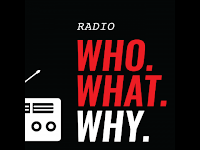
 We study history not so that it can tell us what we should necessarily do, but to tell us what to avoid. For it is often the task of succeeding generations to escape history to escape its repetition, that is to remove from possibility the mistakes of other times. In so so one improves, and that improvement is necessary to growth and to civilization.
We study history not so that it can tell us what we should necessarily do, but to tell us what to avoid. For it is often the task of succeeding generations to escape history to escape its repetition, that is to remove from possibility the mistakes of other times. In so so one improves, and that improvement is necessary to growth and to civilization.In the 1850s, not unlike today, America was two nations. Then it was half free and half slave. When we look to make the comparison to today, we often miss the point. It's not about the comparisons to the Civil War itself, but to the events, the efforts, the policies that actually led to the war. In fact, the war before the war.
That period is examined closely by Andrew Delbanco in The War Before the War: Fugitive Slaves and the Struggle for America's Soul from the Revolution to the Civil War
My conversation with Andrew Delbanco:









